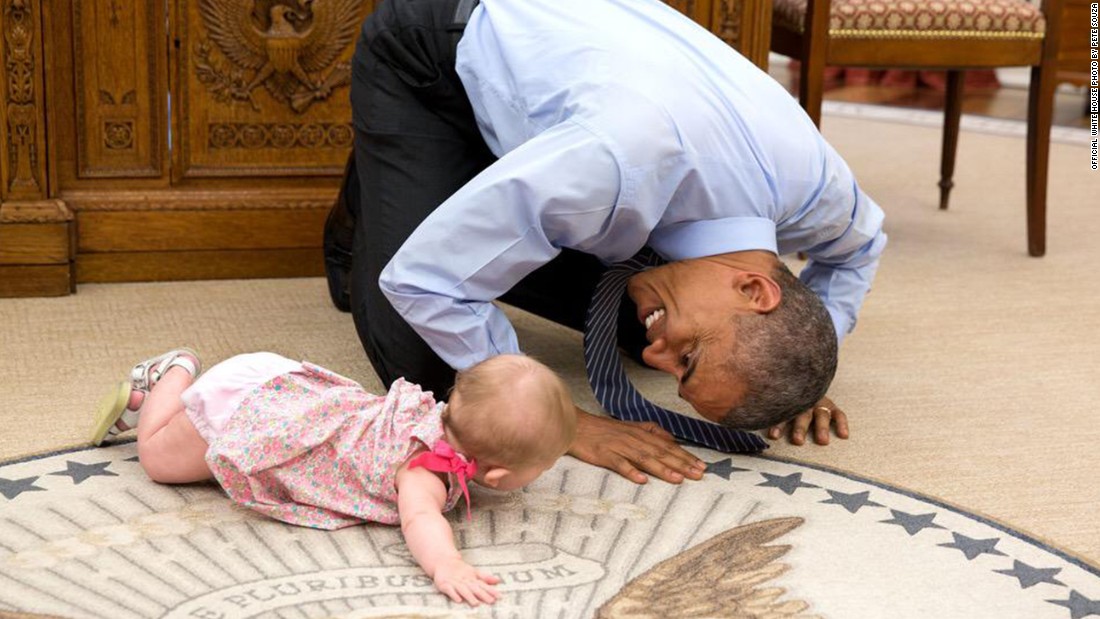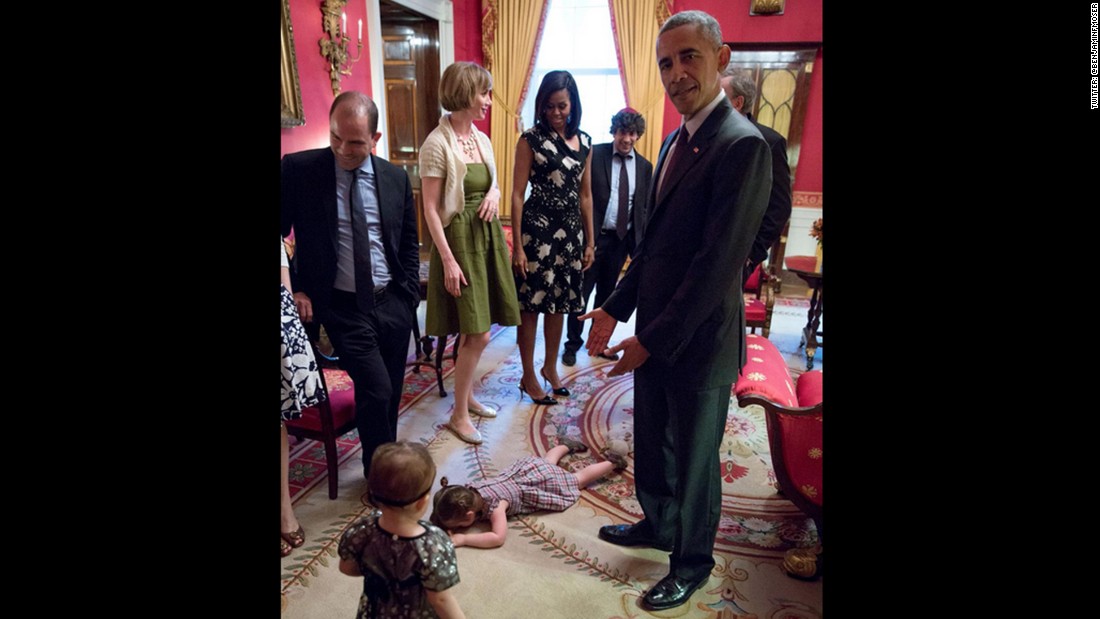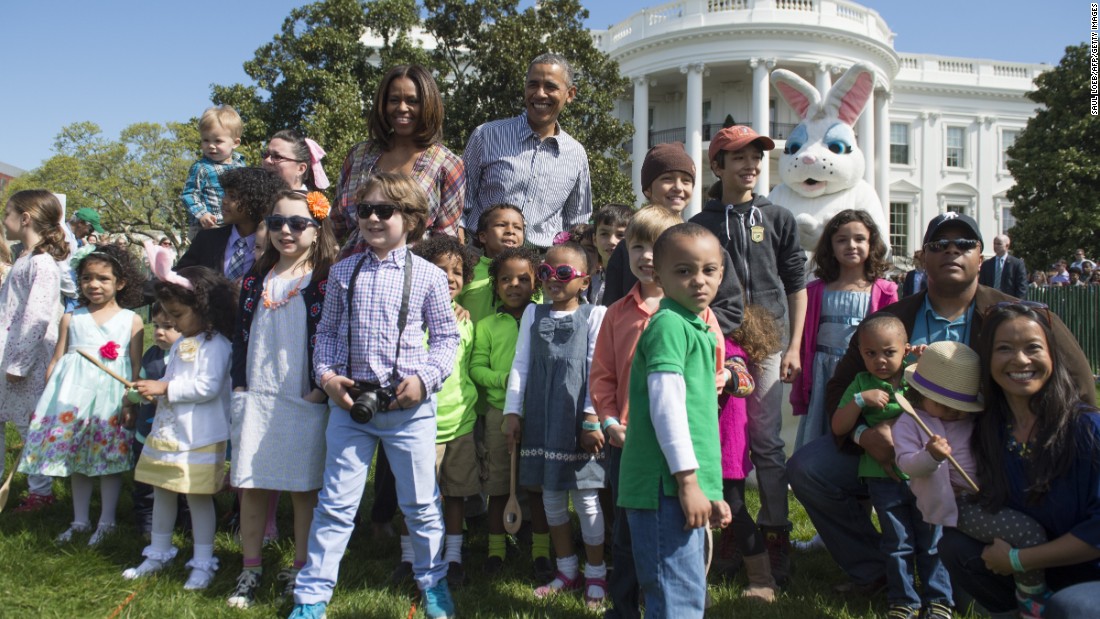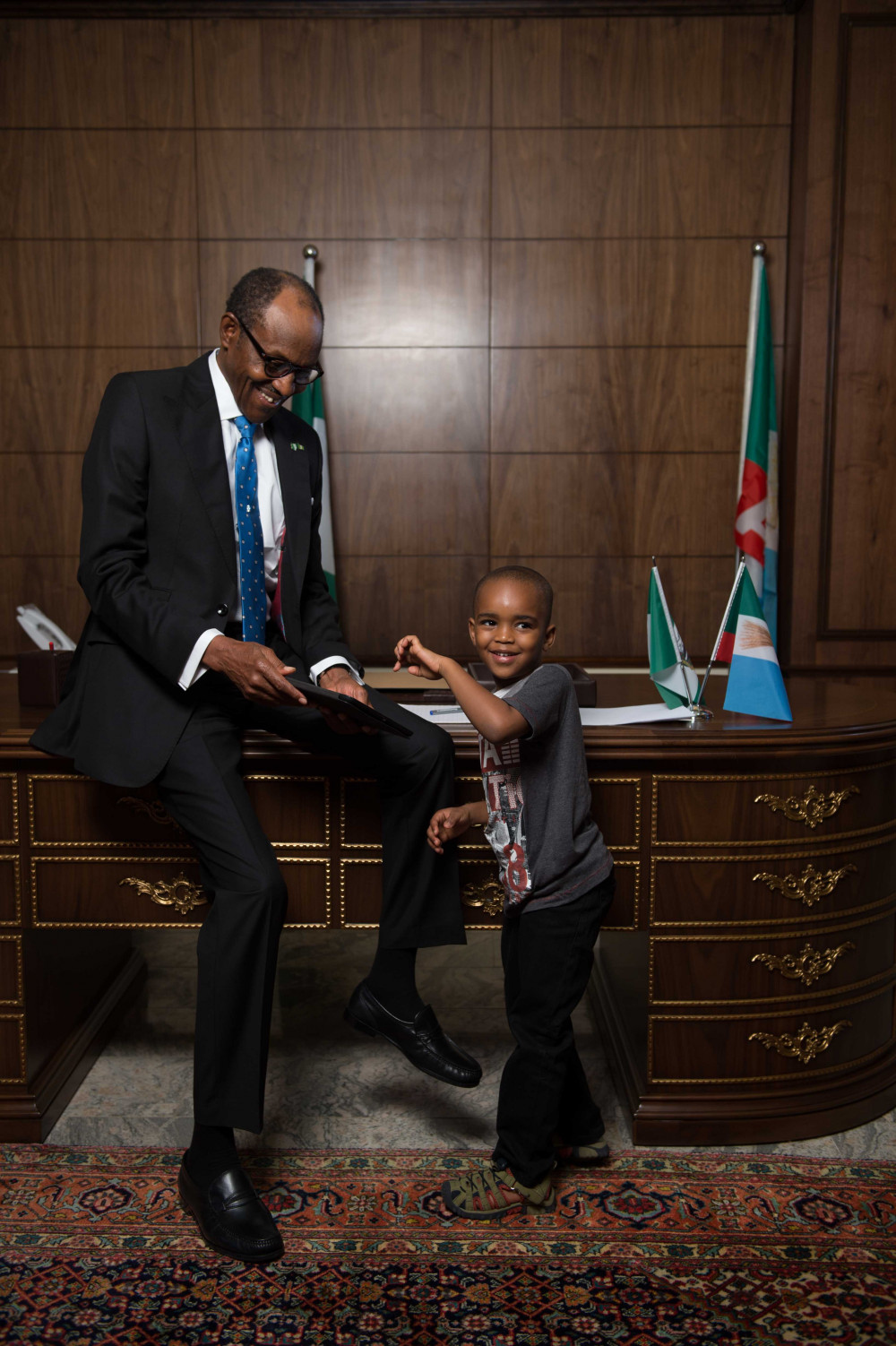Hung along the walls of the West Wing of the White House are photographs of American presidents, in some, they are hard at work and in others, they are just having fun; being a president isn’t all work and no play. They photographs are replaced intermittently with more recent ones. But one photograph stayed hung up for longer than usual. It is the image of Barack Obama bowing to a smartly dressed 5-year-old Black boy, Jacob Philadelphia, who was standing in front of the Oval Office desk with his right hand raised to touch the president’s hair. That photograph was taken in 2012 and no other image better captures Obama’s person. Barack Obama is America’s most culturally accessible president.

There are many more pictures of Barack Obama with kids of different ages and colours. He took a position that seemed mystical to many folks around the world and demystified it.
During his campaign leading up to the 2015 general elections, Nigeria’s President Muhammadu Buhari tried to do the same thing. He released a set of pictures (through his PR agency, of course); one of them was of him holding an iPad, appearing to be in conversation with a young boy.
The similarities are too obvious to ignore, but so also are the fundamental differences. While one man’s picture was genuine–a candid moment caught on camera, the other’s picture was mendacious propaganda–the product of a PR agency’s ploy to rebrand a dictator and make him look friendly and more accessible. As they say, time reveals all, and it has revealed the true nature of both men. While one man is truly what the captured moment says he is–welcoming, open-minded and willing to get his head patted by a 5-year-old, the other has locked himself up in the cubicle of power, detached from the people and as hard-hearted today as he was when he was a dictator. While one hands over in a few days after turning America’s economy around and heading a team that dug the nation out of a deep depression, the other’s disregard for the laws of economics has seen him fling his nation into one of its worst recessions ever.
On Wednesday morning, I saw a video depicting the evolution of Obama, from his days as a community organiser to his time in the White House. In it (at 4:28), Barack and Michelle are dancing with a 106-year-old woman. “She’s dancing,” Barack said. “So, what’s the secret to still dancing at 106?” The old lady laughed. A few seconds later, she said, “I thought I would never get to live in the White House…” “You are here!” Michelle Obama said. Then the old lady continued, “And I tell you, I am so happy we have a Black president.”
https://twitter.com/NathanZed/status/818996399740067840
More than anything, the prospects of an Obama presidency symbolised hope for many Black Americans, many of whom lived through years of slavery and legal racism, through the days of racial wars and anti-government protests, but while he may not have been the messiah they hoped for, his presidency has definitely made an indelible mark on history’s two stone tablets. A Barack Obama presidency meant that a young man who grew up in the hoods of Compton and became a world famous rapper could now stand in the same picture, shaking hands with the leader of a country where it used to be legal for his ancestors to be enslaved and mistreated, a leader who is himself a member of the same race that suffered this mistreatment. While Obama’s presidency has not done much to improve racial relations in America, it certainly did show Americans what could be. That Obama’s presidency would affect the way America sees people of colour and make them more welcome and included into the system was more aspirational than achievable, more fantastical than realistic. But it meant something all the same; it symbolised what America could be like if it got past its racial bias and decided to give everyone and anyone a chance, regardless of their colour.
During his farewell speech, Barack Obama turned on the emotional faucet and let it all flow. He held nothing back as he praised his wife, Michelle, for her “grace and grit and style and good humour,” calling her his “best friend,” and saying that “a new generation sets its sights higher because it has you as a role model.” Obama’s willingness to be emotionally expressive in his speeches and his knack for saying the right things at the right time is an alien concept to African political leaders who would rather plagiarise and be unoriginal, neglecting the need to connect with their audience and inspire confidence.
Obama certainly knew how to connect with an audience. Compare the video of him singing Amazing Grace at the funeral for South Carolina State Senator Clementa Pinckney with the video of some of Nigeria’s past leaders singing ‘O God our help in ages past’.
One video is moving, appropriate for the situation, and a welcome gesture from the president. The other is simply appalling and ironic–the same men that contributed to the decline of Nigeria are now singing that ‘God’ is ‘our help in ages past’.
It is telling that in many African countries, particularly Nigeria, politicians’ tenures are often referred to as ‘regimes’, a term better suited for military dictatorship. Language reflects the culture and state of mind of a people, and as their culture evolves, so does their language. African countries have been riddled with military coups and the effects remain hard to shake off in many of these societies. So, even now, in some countries where democracy is practiced, the leaders are still treated as rulers and are as far detached from the people as possible, to the point that there is no emotional connection between a political leader and the people he represents beyond the election campaign season. But Barack Obama stands for something completely different. He is a leader that truly represents his people, one that connects with them in several ways not limited by race, religion or political ideology.
Barack Obama was not perfect, but he was excellent. And oftentimes, excellence is all we require of our leaders. He steps down with his head high, full of hope for the future of his country because he has led it well. There’s a lot African leaders can learn from the American president from Kenya if only they would just sit down and listen.












